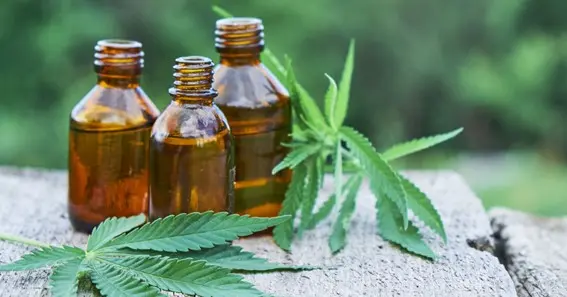CBD oil has continuously gained attention in the wellness sphere, and its acclaim shows no signs of diminishing. It is praised for its ability to mitigate a myriad of health ailments, yet despite its broad endorsement, numerous fallacies regarding CBD oil endure. These fallacies foster ambiguity and might dissuade some individuals from experimenting with CBD oil and potentially gaining from its attributes. Let’s devote a moment to disprove some of these prevalent myths.
What is CBD ?
Cannabidiol, commonly referred to as CBD, is an organic constituent found in the cannabis plant, particularly in its hemp and marijuana forms. This compound is one of many cannabinoids found in the cannabis plant, but it has garnered considerable attention due to its potential therapeutic attributes.
In contrast to tetrahydrocannabinol (THC), the most recognized cannabinoid, CBDfx CBD oil does not induce psychoactive effects, or in other words, it does not result in a ‘high.’ Instead, it has been scrutinized for its potential to aid in the treatment of numerous health ailments such as anxiety, pain, inflammation, and even epilepsy. A multitude of individuals perceive it as a valuable addition to their wellness regimen.
Myth 1: CBD Oil Induces Intoxication
Also Read N: The Ultimate Guide to Choosing the Right Crate for Your Pet
A common myth about CBD oil is that it triggers a ‘high.’ This is categorically inaccurate. CBD, or cannabidiol, is merely one of over a hundred constituents discovered in the cannabis plant, and it is not the element accountable for the mind-altering repercussions linked with cannabis consumption. The actual offender is THC, or tetrahydrocannabinol. The majority of CBD oils incorporate minimal to zero THC, signifying they lack mind-altering consequences.
Myth 2: All CBD Oils Are Uniform
Also Read P: 75k A Year Is How Much Biweekly After Taxes?
Another myth warranting correction is the notion that all CBD oils are equivalent. Contrarily, there can be considerable disparities between CBD oils, encompassing their origin, extraction technique, and potency.
For example, CBD oil can be obtained from either hemp or marijuana plants, and the extraction process can influence the calibre and immaculateness of the ultimate product. Additionally, diverse CBD oils might possess divergent CBD concentrations, so it is imperative to scrutinise the label meticulously and opt for a product that aligns with your requirements.
Myth 3: CBD Oil Promotes Addiction
A few individuals harbour the conviction that CBD oil could be habit-forming, but this is diametrically opposed to the truth. A pronouncement from the World Health Organization (WHO) has affirmed that CBD does not display any addictive characteristics and is deemed safe for human ingestion.
Myth 4: CBD Oil Is Solely Advantageous for Individuals with Health Ailments
Although it is accurate that numerous individuals employ CBD oil to manage diverse health maladies, it can also be advantageous for those who are predominantly healthy. CBD possesses anti-inflammatory and antioxidant properties, which can aid in safeguarding the body from harm and bolstering overall well-being.
Myth 5: CBD Oil Is Prohibited
The legality of CBD oil fluctuates from region to region, but it is permitted in many locales worldwide. In the United States, for instance, CBD oil extracted from hemp (a variant of the cannabis plant with exceedingly low THC levels) is lawful at the federal tier, albeit individual state statutes may differ. It is always prudent to ascertain the regulations in your vicinity prior to procuring or utilizing CBD oil.
Benefits of CBD oil
Hey there! Have you heard about CBD oil? Yes, it’s been all over the news and social media lately, and trust me, it’s worth the hype. CBD, or cannabidiol, is a natural compound found in cannabis plants, and the oil is just CBD extracted and mixed with a carrier oil. Now, before you raise an eyebrow, let me clarify that CBD is NOT the same as THC, the compound in cannabis that gets you high. CBD doesn’t have any psychoactive effects, but it does have a bunch of other amazing benefits. Let’s chat about a few of them, shall we?
- It Can Help Reduce Anxiety and Stress: Life is stressful, right? Work, family, the never-ending news cycle… it can all get a bit overwhelming. That’s where CBD oil can come in handy. It interacts with receptors in your brain to help regulate your mood and reduce feelings of anxiety and stress. Many people find that it helps them feel more relaxed and centered.
- It Can Help You Sleep Better: If you toss and turn at night, you’re not alone. Many people struggle with insomnia or disrupted sleep. CBD oil can help with that too! It can help you relax before bedtime and can also influence your sleep cycle to help you get more restorative rest.
- It Can Help Manage Pain: Whether it’s a nagging headache, joint pain, or muscle soreness after a workout, pain is just… well, a pain! CBD oil has anti-inflammatory properties that can help reduce inflammation and provide relief from various types of pain.
- It Can Benefit Your Skin: Got acne? Dry skin? Eczema? CBD oil might be able to help. It has anti-inflammatory and antioxidant properties that can help reduce redness, calm irritation, and even help control oil production.
- It Can Help Protect Your Brain: CBD has neuroprotective properties, which means it can help protect your brain cells from damage. This is still being studied, but it’s super promising, especially when it comes to conditions like Alzheimer’s disease.
Remember, while CBD oil can offer many benefits, it’s not a magic cure-all. It’s just one piece of the puzzle when it comes to taking care of your body and mind. Also, everyone is different, so what works wonders for one person might not work the same for another. And as always, it’s super important to talk to a healthcare professional before starting any new supplement, including CBD oil.
Conclusion
CBD oil is an organic substance with a plethora of potential advantages, yet numerous myths about it persist. By rectifying these widespread myths, we aspire to dissipate some of the confusion and assist more individuals in making enlightened choices about the suitability of CBD oil for them. As always, it is recommended to seek counsel from a healthcare professional before embarking on any new supplement regimen.






